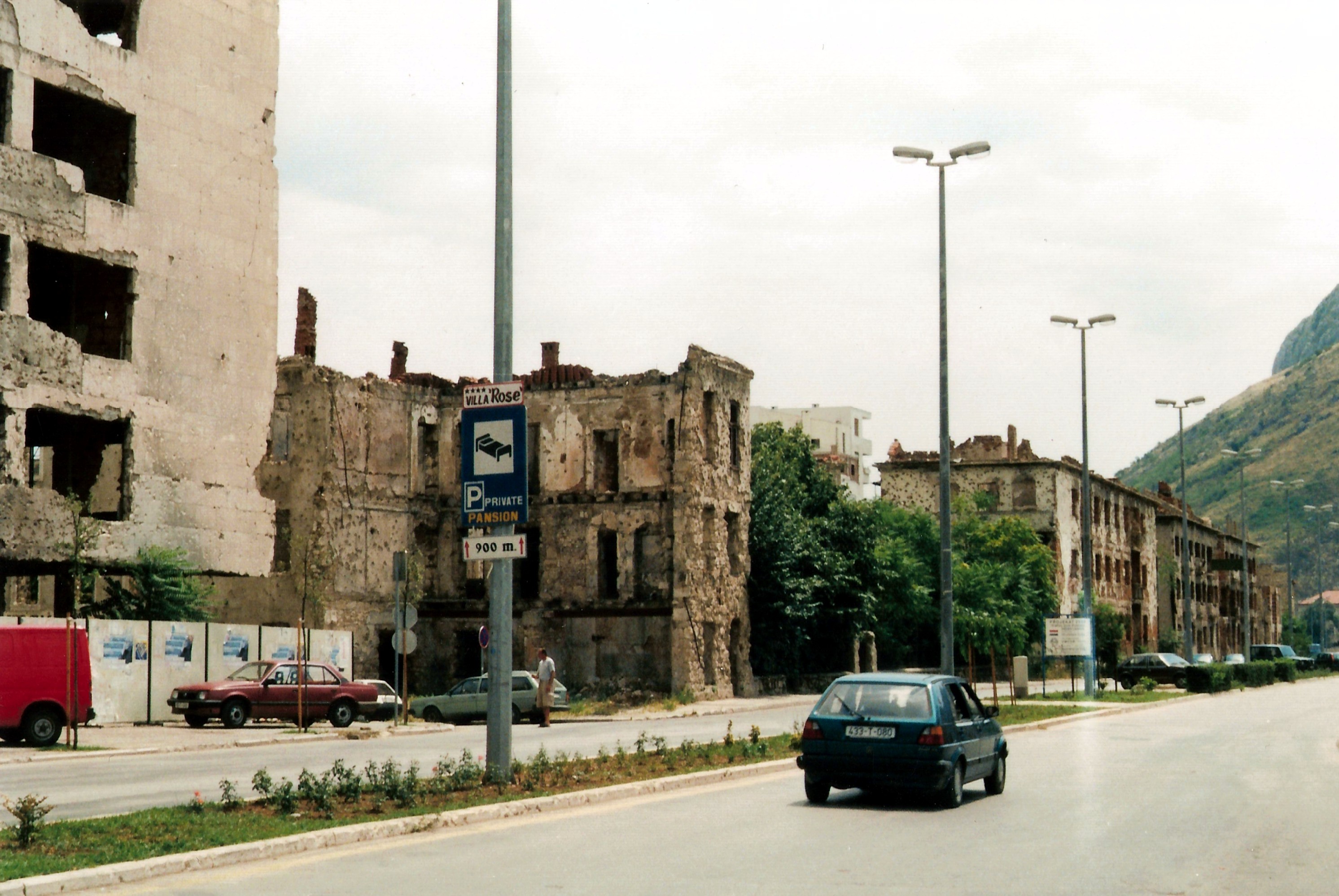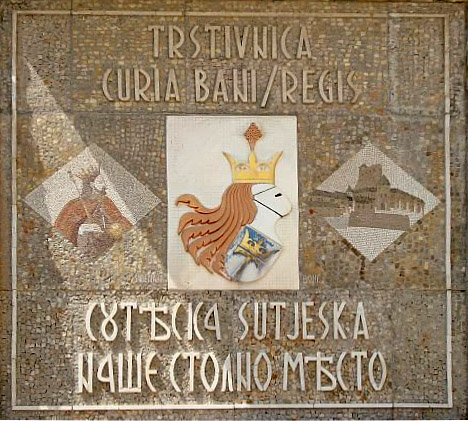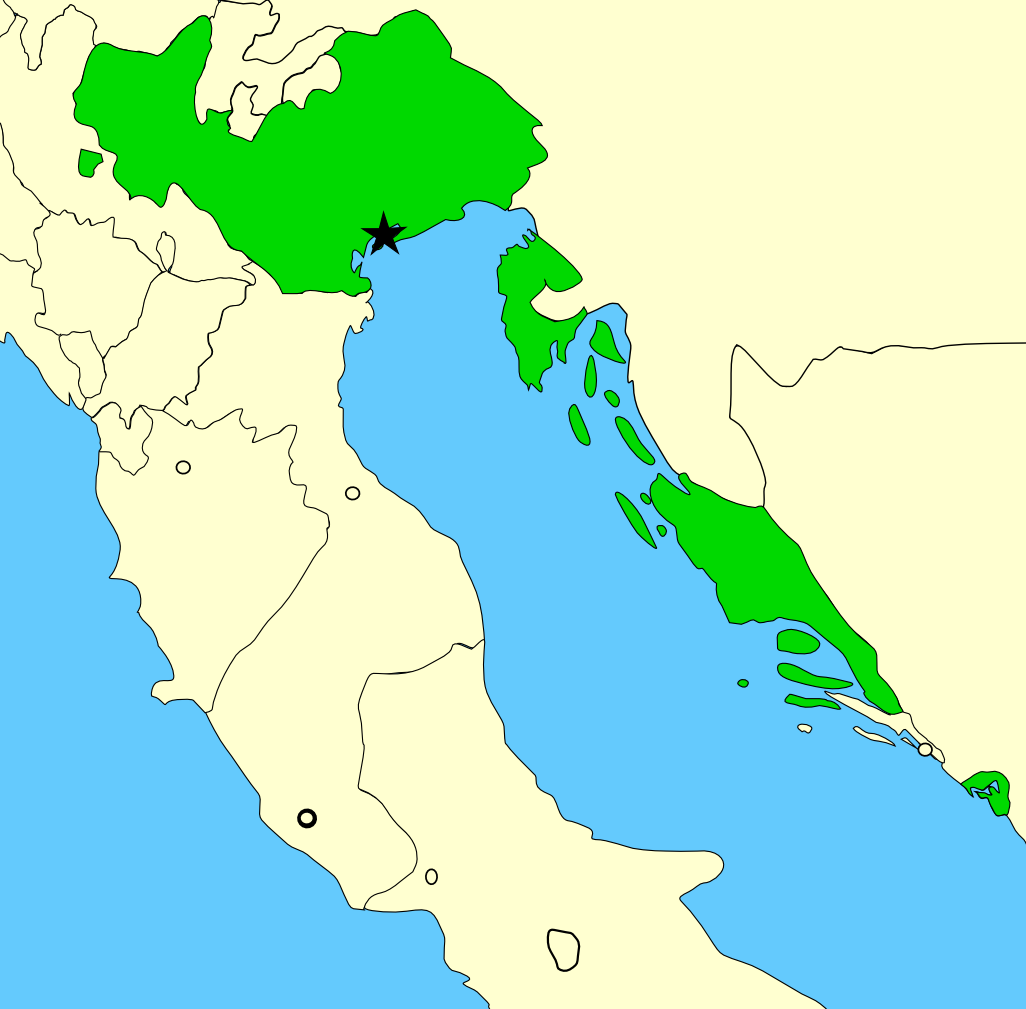|
Anđeo Kraljević
Anđeo Kraljević (29 October 180727 August 1879) was a Croats of Bosnia and Herzegovina, Herzegovinian Croat Order of Friars Minor, Franciscan and a prelate of the Catholic Church who served as Apostolic Vicar of Apostolic Vicariate of Herzegovina, Herzegovina in the Ottoman Empire from 1864 to 1879. Kraljević was also the first Custos (Franciscans), Custos of the Franciscan Province of Herzegovina, Franciscan Custody of Herzegovina, holding the office on two occasions, from 1852 to 1856 and again from 1862 to 1865. Kraljević was a member of the Franciscan Province of Bosnia since 1823 and was ordained a priest in 1831. Since the 1840s, he was one of the initiators to establish the Franciscan Province of Herzegovina, Franciscan Custody of Herzegovina, separate from the Bosnian Province. He became the first head of the Herzegovinian Custody serving as a custos on two non-consecutive terms, from 1852 to 1856 and again from 1862 to 1865. As a custos, he published a schematism of ... [...More Info...] [...Related Items...] OR: [Wikipedia] [Google] [Baidu] |
The Most Reverend
The Most Reverend (abbreviated as The Most Revd or The Most Rev) is an honorific style (form of address), style given to certain (primarily Western Christian, Western) Christian clergy and Christian minister, ministers. It is a variant of the more common style "The Reverend". Catholic In the Catholic Church, two different systems may be found. In most countries, all bishops are styled "The Most Reverend", as well as monsignors of the rank of protonotary apostolic ''de numero''. In the United Kingdom, only archbishops bear the style "The Most Reverend", with other bishops styled "The Right Reverend". By custom, this title is used for the Minister general, ministers general of the various branches of the Order of Friars Minor as well as of the Third Order Regular of St. Francis. Eastern Orthodox In the Eastern Orthodox Church, Eastern Orthodox tradition, archbishops under the Ecumenical Patriarchate (those who are not the Primate (bishop), primates of autocephalous churches) and M ... [...More Info...] [...Related Items...] OR: [Wikipedia] [Google] [Baidu] |
Ferenc Di Paolo De Nádasdy-Fogaras
Ferenc () is a given name of Hungarian origin. It is a cognate of Francis, Francisco, Francesco, François, Frank and Franz. People with the name include: * Ferenc Batthyány (1497–1566), Hungarian magnate and general * Ferenc Bene (1944–2006), Hungarian footballer * Ferenc Berényi (1927–2004), Hungarian artist * Ferenc Bessenyei (1919–2004), Hungarian actor * Ferenc Csik (1913–1945), Hungarian swimmer * Ferenc Deák (politician) (1803–1876), Hungarian statesman, Minister of Justice * Ferenc Deák (footballer) (1922–1998), Hungarian footballer * Ferenc Erkel (c. 1810–1893), Hungarian composer and conductor * Ferenc Farkas de Boldogfa (1713–1770), Hungarian nobleman * Ferenc Farkas (Jesuit priest) (1742–1807), Hungarian Jesuit priest * Ferenc Farkas (Zala county auditor) (1838–1908), Hungarian nobleman * Ferenc Farkas (1905–2000), Hungarian composer * Ferenc Fekete (1914–1981), Hungarian cinematographer * Ferenc Fricsay (1914–1963), Hungarian ... [...More Info...] [...Related Items...] OR: [Wikipedia] [Google] [Baidu] |
Herzegovina Uprising (1875–77)
Herzegovina uprising or Herzegovinian uprising may refer to: * Herzegovina uprising (1596–97), fought by Serbs in Herzegovina against the Ottoman Empire, 1596–1597 * Herzegovina uprising (1852–62), fought by Serbs in Herzegovina against the Ottoman Empire, 1852–1862 * Herzegovina uprising (1875–77), fought by Serbs in Herzegovina against the Ottoman Empire, 1875–1877 * June 1941 uprising in eastern Herzegovina, fought by Serbs in eastern Herzegovina against Ustaše The Ustaše (), also known by anglicised versions Ustasha or Ustashe, was a Croats, Croatian fascist and ultranationalist organization active, as one organization, between 1929 and 1945, formally known as the Ustaša – Croatian Revolutionar ... in 1941 See also * Herzegovina (other) * Herzegovinian (other) * Uprising in Bosnia and Herzegovina (other) * Serbian Uprising (other) {{disambiguation Herzegovina ... [...More Info...] [...Related Items...] OR: [Wikipedia] [Google] [Baidu] |
Mostar
Mostar () is a city and the administrative centre of Herzegovina-Neretva Canton of the Federation of Bosnia and Herzegovina, an entity of Bosnia and Herzegovina, and the historical capital of Herzegovina. Mostar is situated on the Neretva River and is the fifth-largest city in the country. Mostar was named after the bridge keepers (''mostari'') who guarded the Stari Most (Old Bridge) over the Neretva during the Ottoman Bosnia and Herzegovina, Ottoman era. The Old Bridge, a UNESCO World Heritage Site, commissioned by Suleiman the Magnificent in the 16th century, is one of Bosnia and Herzegovina's most visited landmarks, and is considered an exemplary piece of Islamic architecture in the Balkans. History Ancient and medieval history Human settlements on the river Neretva, between Mount Hum (Mostar), Mount Hum and the Velež Mountain, have existed since prehistory, as witnessed by discoveries of fortified enceintes and cemeteries. Evidence of Roman people, Roman occupation was di ... [...More Info...] [...Related Items...] OR: [Wikipedia] [Google] [Baidu] |
Franciscan Friary, Široki Brijeg
Franciscan friary of the Assumption of the Blessed Virgin Mary is a friary of the Franciscan Province of Herzegovina in Široki Brijeg. The friary church was built in 1905 and the friary in 1846. A much older and smaller church was built in 1847 and was demolished in 1905, in order to be replaced by a larger church. The friary is the first Franciscan friary built in Herzegovina after the Ottomans destroyed all of the monasteries there in the 16th century. History Široki Brijeg was mentioned as a parish for the first time in 1599, under the name Blato. Since the late 18th century, the seat of the parish was in Čerigaj, a remote village. This was the case until 1849 when the Franciscans moved to the newly-built friary in Široki Brijeg. Herzegovinian Franciscans, mostly from the friary in Kreševo, who took pastoral care over Herzegovina, decided to establish their own friary in Herzegovina in Široki Brijeg in 1840. Leaders of this initiative were Nikola Kordić, Anđeo ... [...More Info...] [...Related Items...] OR: [Wikipedia] [Google] [Baidu] |
Franciscan Province Of Bosnia
Franciscan Province of Bosna Srebrena (also ''Bosna Argentina''; officially ) is a province of the Franciscan order of the Catholic Church in Bosnia and Herzegovina, historically active in Croatia as well. Their headquarters are currently in Sarajevo. Monasteries and locations The Province of Bosna Srebrena includes the monasteries in: * Bosnia and Herzegovina at: ** Sarajevo: ::Sarajevo / Bistrik – samostan sv. Ante, ::Sarajevo / Kovačići – samostan Uzvišenje sv. Križa i svetište Nikole Tavelića, ::Sarajevo / Nedžarići – samostan sv. Pavla; ** Rest of Bosnia and Herzegovina: ::Visoko – Samostan sv. Bonaventure, ::Franciscan monastery in Kraljeva Sutjeska – Samostan i župa sv. Ivana, ::Franciscan monastery in Fojnica – Samostan i župa Svetoga Duha, ::Guča Gora Monastery – Samostan i župa sv. Franje Asiškog, ::Dubrave – samostan sv. Ante i župa Bezgrešnog Začeća, ::Gorica Monastery, Livno / Gorica – samostan sv. Petra i Pavla, ::Fra ... [...More Info...] [...Related Items...] OR: [Wikipedia] [Google] [Baidu] |
Custos (Franciscans)
Custos () means a religious superior or an official in the Franciscan Order. The precise meaning has differed over time, and among the Friars Minor, Conventuals, and Capuchins. Description Francis of Assisi sometimes applied the word to any superior in the Order: Guardians, Ministers Provincial, and even to the Minister General. Sometimes he restricts it to officials presiding over a certain number of friaries in the larger provinces of the Order with restricted powers and subject to their respective Ministers Provincial. It is in this latter sense that he refers to the ''custodes'' as having power, conjointly with the Provincials, to elect and to depose the Minister General. The friaries over which a ''custos'' (in this latter sense) presided were collectively called a custody (). The number of custodies in a province varied according to its size. Already at an early period it was deemed expedient that only one of the several ''custodes'' of a province should proceed to the Gen ... [...More Info...] [...Related Items...] OR: [Wikipedia] [Google] [Baidu] |
Apostolic Vicar
Apostolic may refer to: The Apostles An Apostle meaning one sent on a mission: *The Twelve Apostles of Jesus, or something related to them, such as the Church of the Holy Apostles *Apostolic succession, the doctrine connecting the Christian Church to the original Twelve Apostles *The Apostolic Fathers, the earliest generation of post-Biblical Christian writers *The Apostolic Age, the period of Christian history when Jesus' apostles were living *The '' Apostolic Constitutions'', part of the Ante-Nicene Fathers collection Specific to the Roman Catholic Church *Apostolic Administrator, appointed by the Pope to an apostolic administration or a diocese without a bishop * Apostolic Camera, or "Apostolic Chamber", former department of finance for Papal administration * Apostolic constitution, a public decree issued by the Pope *Apostolic Palace, the residence of the Pope in Vatican City * Apostolic prefect, the head of a mission of the Roman Catholic Church *The Apostolic See, sometime ... [...More Info...] [...Related Items...] OR: [Wikipedia] [Google] [Baidu] |
Croats Of Bosnia And Herzegovina
The Croats of Bosnia and Herzegovina (), often referred to as Bosnian Croats () or Herzegovinian Croats (), are native to Bosnia and Herzegovina and constitute the third most populous ethnic group, after Bosniaks and Serbs of Bosnia and Herzegovina, Serbs. They are also one of the constitutive nations of Bosnia and Herzegovina. Croats of Bosnia and Herzegovina have made significant contributions to the culture of Bosnia and Herzegovina. Most Croats identify themselves as Catholic Church in Bosnia and Herzegovina, Catholics and speak the Croatian language. Between the 15th and 19th centuries, Christianity in the Ottoman Empire, Catholics in Ottoman Bosnia and Herzegovina were often persecuted by the Ottoman Empire, causing many of them to flee the area. In the 20th century, political turmoil and poor economic conditions led to increased emigration. Ethnic cleansing in the Bosnian War, Ethnic cleansing within Bosnia and Herzegovina in the 1990s saw Croats forced to go to different ... [...More Info...] [...Related Items...] OR: [Wikipedia] [Google] [Baidu] |
Kingdom Of Dalmatia
The Kingdom of Dalmatia (; ; ) was a crown land of the Austrian Empire (1815–1867) and the Cisleithanian half of Austria-Hungary (1867–1918). It encompassed the entirety of the region of Dalmatia, with its capital at Zadar. History The Habsburg monarchy had annexed the lands of Dalmatia after the Napoleonic War of the First Coalition: when Napoleon, Napoleon Bonaparte launched his Campaigns of 1796 in the French Revolutionary Wars, Italian Campaign into the Habsburg duchies of Duchy of Milan, Milan and Duchy of Mantua, Mantua in 1796, culminating in the Siege of Mantua (1796–97), Siege of Mantua, he compelled Emperor Francis II, Holy Roman Emperor, Francis II to make peace. In 1797 the Treaty of Campo Formio was signed, whereby the Habsburg emperor renounced possession of the Austrian Netherlands and officially recognized the independence of the Italian Cisalpine Republic. In turn, Napoleon ceded to him the possessions of the Republic of Venice, including the Dalmatian coas ... [...More Info...] [...Related Items...] OR: [Wikipedia] [Google] [Baidu] |
Zadar
Zadar ( , ), historically known as Zara (from Venetian and Italian, ; see also other names), is the oldest continuously inhabited city in Croatia. It is situated on the Adriatic Sea, at the northwestern part of Ravni Kotari region. Zadar serves as the seat of Zadar County and of the wider northern Dalmatian region. The city proper covers with a population of 75,082 , making it the second-largest city of the region of Dalmatia and the fifth-largest city in the country. Today, Zadar is a historical center of Dalmatia, Zadar County's principal political, cultural, commercial, industrial, educational, and transportation centre. Zadar is also the episcopal see of the Archdiocese of Zadar. Because of its rich heritage, Zadar is today one of the most popular Croatian tourist destinations, named "entertainment center of the Adriatic" by ''The Times'' and "Croatia's new capital of cool" by ''The Guardian''. UNESCO's World Heritage Site list included the fortified city of Zadar ... [...More Info...] [...Related Items...] OR: [Wikipedia] [Google] [Baidu] |
Petar Dujam Maupas
Petar (, sr-Cyrl, Петар) is a South Slavic masculine given name, their variant of the Biblical name Petros cognate to Peter. Derivative forms include Pero, Pejo, Pera, Perica, Petrica, Periša. Feminine equivalent is Petra. People mononymously known as Petar include: * * * Petar of Serbia ( – 917), early Prince of the Serbs * Petar of Duklja (), early archont in Dioclea * Petar Krešimir (died 1074/1075), King of Croatia and Dalmatia * Petar Delyan (r. 1040-1041), Bulgarian rebel, declared Emperor of Bulgaria Notable people with the name are numerous: * See also * Sveti Petar (other) * Petrov (other) * Petrić * Petričević Petričević ( sr-Cyrl, Петричевић) is a Serbo-Croatian surname, a patronymic A patronymic, or patronym, is a component of a personal name based on the given name of one's father, grandfather (more specifically an avonymic), or an ea ... References {{reflist Bulgarian masculine given names Croatian mascu ... [...More Info...] [...Related Items...] OR: [Wikipedia] [Google] [Baidu] |




